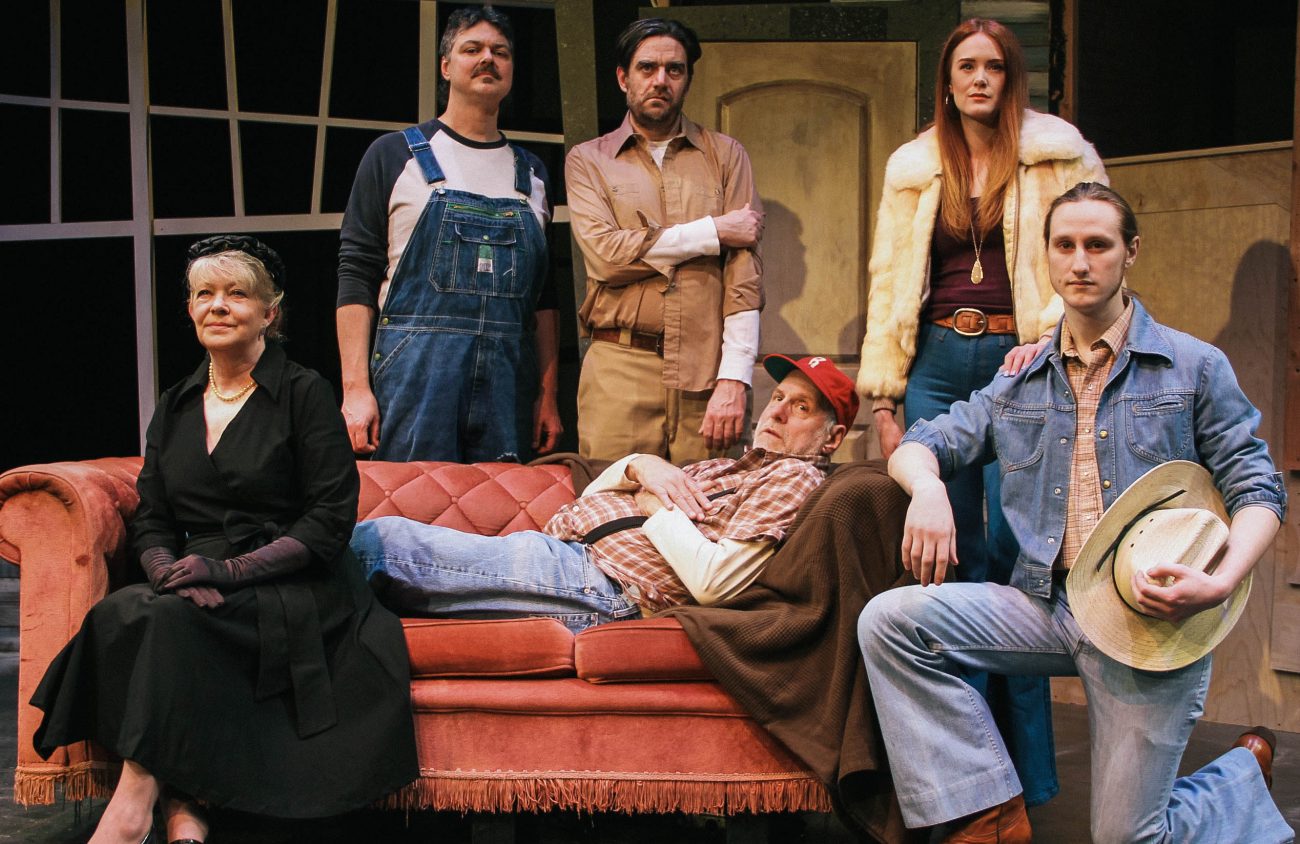Between my two favorite American playwrights, Tennessee Williams and Sam Shepard, I find Shepard to be, inexplicably, the more familiar but less accessible of the two.
For all the remarkable similarities found in their themes — family dysfunction, alcoholism, killer secrets, and the crass materialism and spiritual bankruptcy of the American dream — Williams is far and away the more classical artist, irreducibly genteel no matter how grotesque his subject matter. His work traffics in grand archetypes, whereas Shepard’s characters seem blurry and emaciated, like a fading Kodachrome in someone else’s family album.
This takes away nothing from Shepard, a master of restraint who tackled his chosen territory with a muted desperation and broiling anger that sometimes border on poetic incoherence. The mumble and the shrug are Shepard’s true domain. Because of this, ironically, he is the funnier of the two writers, and his tragedies are more unbearable.
Take, for instance, Buried Child, Shepard’s Pulitzer-winning drama now on stage at Oregon Contemporary Theatre, under the direction of Joseph Gilg. The blunt title reveals the exhaustion at the heart of the play, suggesting a pain that is sick of being ignored. The crime is terrible, indeed, but the punishment of denying it is what this play is about — a punishment as guilt-ridden and far-reaching as the generations of Cain.
The family at the heart of Buried Child is broken beyond repair. Stranded like castaways on a failed Illinois farm, their domestic situation is a living death, characterized by conversations that walk a fine line between disregard and outright hostility. An unspoken tragedy grips them, and their stilted, strained waltz around its horrible truth holds them prisoner.
Gilg, as director, has a wonderful feel for the harsh, musty atmosphere of the Midwest working poor that Shepard so accurately captures in this play; you can practically smell the living room where the family conducts its business, a mausoleum of thwarted hopes and claustrophobic soul-rot that is barely concealed by the sniping, twangy humor that punctuates their conversations.
As Dodge, the dying patriarch at the center of this ungodly mess, Robert Hirsh gives a truly remarkable performance. He totally inhabits this character, making his defeat palpable. Dodge is at once sad and sadistic, a couch-ridden alcoholic who takes a cruel delight in watching his empire fracture and crumble, and Hirsh completely owns the role.
Denise LaCroix is also excellent as Dodge’s domineering wife, Halie, a prideful woman who is as committed to religious hypocrisy as she is to the false mythology of her own family history — a history that, in reality, reads like a checklist for moral corruption.
Kelly Oristano and Tony Stirpe both hold their own as the couple’s emotionally crippled sons, Tilden and Bradley. Rounding out the strong cast are Jonathan Edwards as Tilden’s long-lost son Vince; Leslie Jones as Vince’s girlfriend Shelly, an innocent witness to the carnage; and Randall Brous as the milquetoast Father Dewis, a man of the cloth who is completely out of his depth in confronting the true wages of sin.
Much like Tennessee Williams’ Cat on a Hot Tin Roof, Shepard’s play burrows down inside a single family whose secrets and lies are eating it from the inside out. Both plays expand outward to indict the American Dream itself, which — like Dodge — demands that we toughen up and keep shut about the shameful crimes we secret away in the closet. Buried child, buried past. All good, right? Nothing to see here.
Shepard’s play reveals just how well that works out for us, at the level of the nuclear family as well as at the level of the nation. OCT’s excellent production is a timely wake-up call to the fact that the things we bury are, in the end, like it or not, the things that define us.
Buried Child plays through April 28 at Oregon Contemporary Theatre; 541-465-1506 or octheatre.org.
